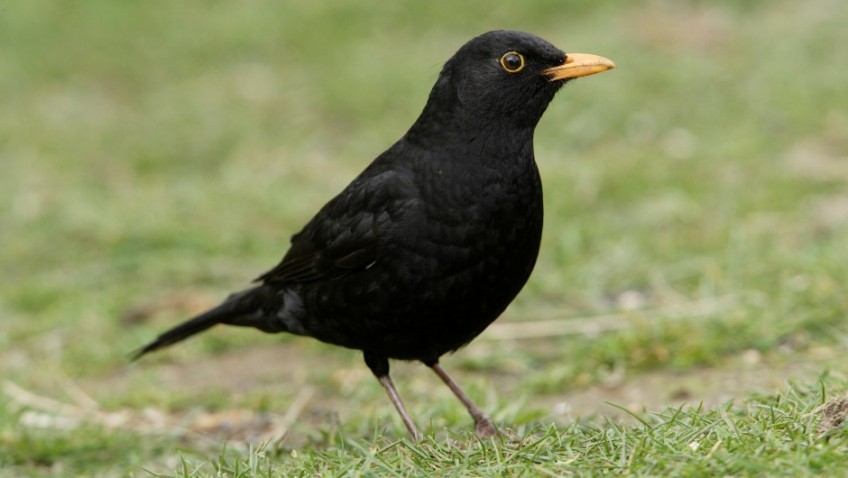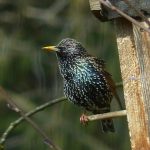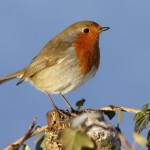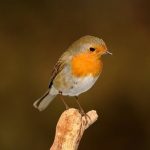by the RSPB’s Jamie Wyver
Feeding garden birds is good for them, and good for you. Putting out extra food for birds during the winter helps them survive the colder months. It also brings them nearer to your home, allowing you to enjoy watching their antics. Drawing wildlife to you helps to bring the outdoor space to life, especially during those gloomy winter days.
 For many of us, garden birds are the first wildlife we encounter. If you have grandchildren, the feeding and watching of garden birds together is a simple pleasure, but one that can have a lasting effect on how those children view nature. I certainly inherited my own passion for wildlife from spending time with my grandparents watching birds and taking country walks.
For many of us, garden birds are the first wildlife we encounter. If you have grandchildren, the feeding and watching of garden birds together is a simple pleasure, but one that can have a lasting effect on how those children view nature. I certainly inherited my own passion for wildlife from spending time with my grandparents watching birds and taking country walks.
What should you feed garden birds?
Different birds need different types of food, so it’s best to provide a selection. Bird seed mixes are suitable for finches and sparrows. Look out for mixes that contain flaked maize, millet, and sunflower seeds. Mealworms are great for insect-eating birds like dunnocks, robins and wrens, and are certainly very popular with the starlings in my garden.
Fat is particularly important in cold weather, and you can buy this in balls, blocks, bars and nibbles. Peanuts will attract tits, and if you’re lucky, even nuthatches and woodpeckers. However you should take care when buying peanuts as they can contain a natural toxin that’s harmful to birds. Always choose high quality peanuts for a reliable supplier. We sell peanuts and a range of other foods online: shopping.rspb.org.uk
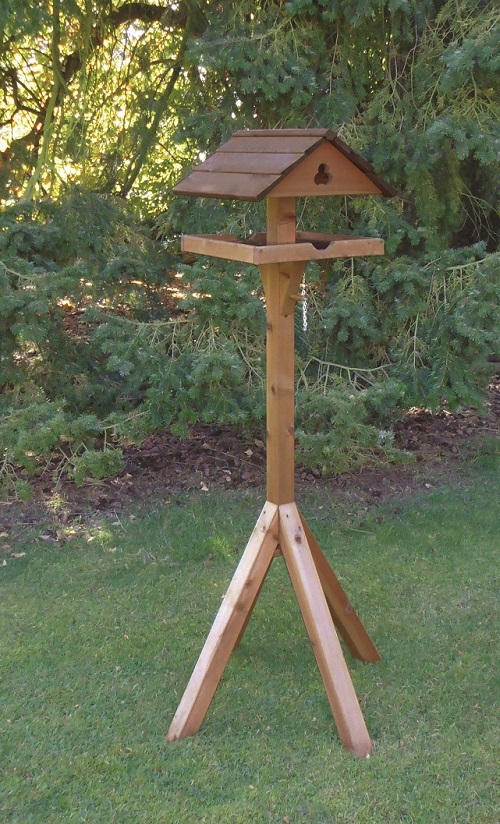 You don’t need to spend a fortune on bird food as kitchen scraps will also help a hungry bird. Cooked rice, crumbled cheese, old apples and pears, chopped unsalted bacon, pastry and even baked potatoes will be taken by birds. Bread is best given as part of a variety of food. It’ll fill birds up, but it’s junk food for them, with no real nutritional value.
You don’t need to spend a fortune on bird food as kitchen scraps will also help a hungry bird. Cooked rice, crumbled cheese, old apples and pears, chopped unsalted bacon, pastry and even baked potatoes will be taken by birds. Bread is best given as part of a variety of food. It’ll fill birds up, but it’s junk food for them, with no real nutritional value.
What shouldn’t you put out for birds?
There are a few kitchen scraps that can harm your feathered visitors. For example, you shouldn’t offer cooking fat from your Sunday roast or Christmas dinner. The fat and meat juices combine to make a runny, greasy mess which sticks to birds’ feathers. This reduces their waterproofing and insulation. You should also avoid feeding birds milk (they can’t digest it) or desiccated coconut (it swells up inside them). Other leftovers that aren’t suitable are cooked porridge oats, and anything that’s mouldy or stale.
Get involved
Why not join in with the 2017 RSPB Big Garden Birdwatch, which runs from Saturday 28 to Monday 30 January? Settle by the window with a cup of tea for an hour and simply count the birds you see. It’s a relaxing and rewarding experience and you’ll be playing a part in one of the country’s biggest citizen science projects. Find out more, and register, on our website: rspb.org.uk/birdwatch
There’s more advice on giving nature a home in your garden here: rspb.org.uk/homes

